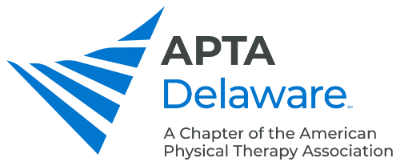The following letter was sent by DPTA leadership to the Director of Legislative Services in the Office of the Governor:
Dear Mr. Seemans,
I am writing to you on behalf of the Delaware Physical Therapy Association (DPTA). As Governor Carney and his advisors are expected to make additional recommendations for essential versus nonessential businesses that will be allowed to operate during this COVID -9 crisis, the DPTA requests that you please be aware that is important for nearly all physical therapy patients to continue to get care. Our national association, The American Physical Therapy Association (APTA) has made the following recommendations:
“APTA encourages PTs, PTAs, and students to flatten the curve of the COVID-19 outbreak by following CDC guidance to minimize exposure in the clinic and practice social distancing by avoiding large social gatherings. At the same time, we know that our profession plays a crucial role in the health of our society, and there are people in our communities whose health will be significantly impacted by disruptions to care.
Patient care has always been specific to the individual, with the physical therapist assessing a person’s needs relative to their goals. Thus, physical therapists have a responsibility to review CDC guidance, to understand who is at highest risk and how to best reduce exposure, and to use their professional judgment in the best interests of their patients and clients and their local communities — including rescheduling non urgent care if that is the best approach, or making other adjustments when the risk of exposure to COVID-19 outweighs the benefits of immediate treatment.”
APTA Statement on Patient Care and Practice Management During COVID-19 Outbreak, March 17, 2020
The DPTA, speaking for the physical therapy community in Delaware, strongly urges that physical therapy facilities be considered “essential” and part of the overall medical provider community that will remain open. Thank you very much for your consideration of this request and for your diligent work on the half of the citizens of Delaware.
